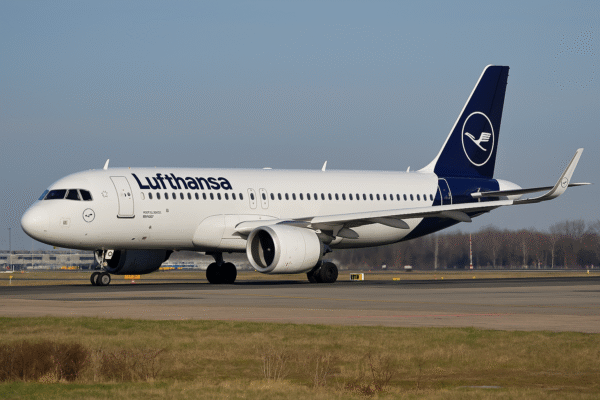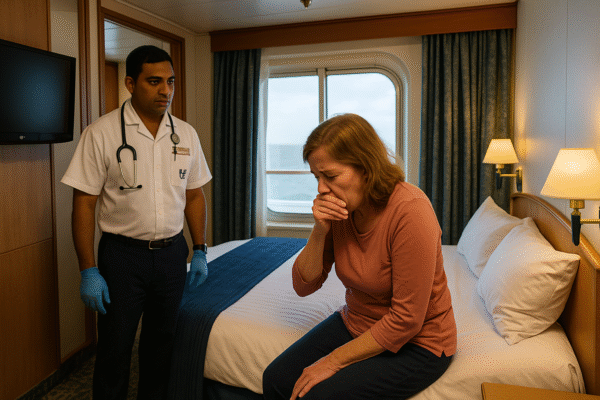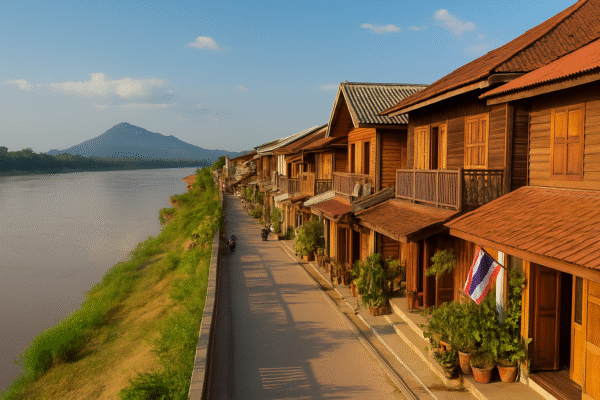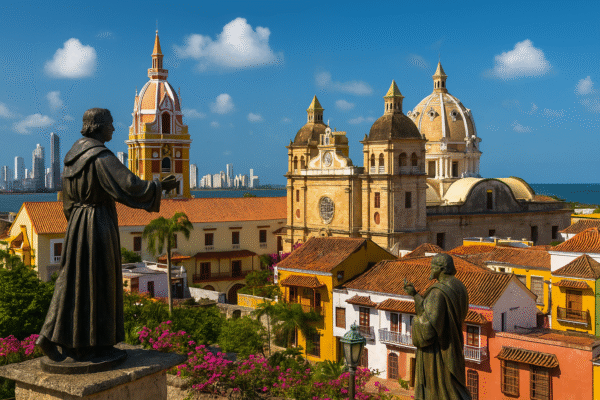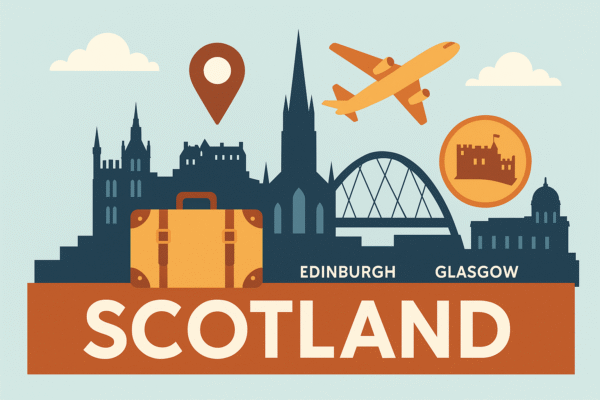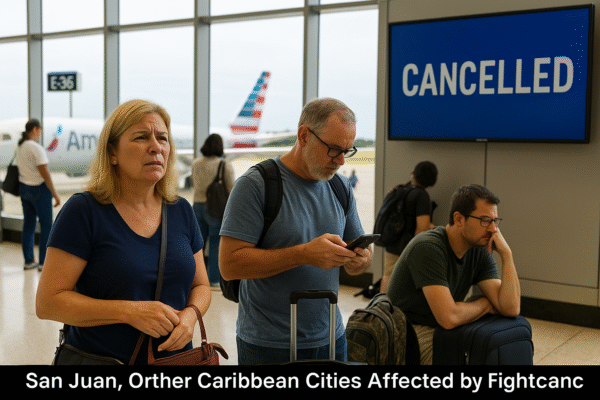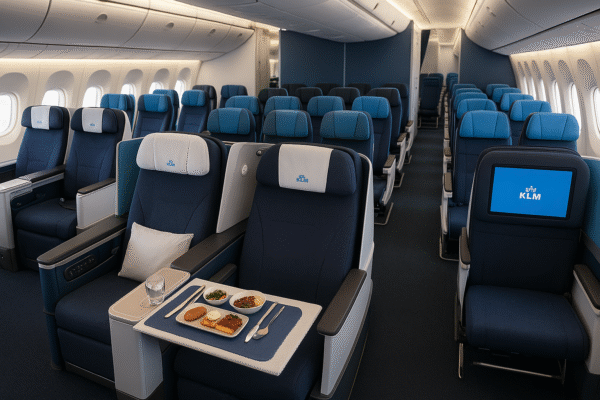KLM Royal Dutch Airlines has announced a forward-looking transformation of its intercontinental services, set to take effect in 2027. The airline, which has long been recognized as one of Europe’s most innovative carriers, is making significant changes to enhance both passenger comfort and operational efficiency. These improvements are designed to meet the evolving needs of travelers, boost the tourism experience, and solidify KLM’s position as a leader in global aviation.
With international tourism steadily growing, airlines are under pressure to create travel experiences that cater to both comfort and affordability. KLM’s new service concept aligns with this demand, combining increased seating capacity with improved onboard hospitality. By reimagining both luxury and economy options, the airline aims to serve a wider range of passengers traveling for leisure and business.
Elevating Luxury in World Business Class
A highlight of the transformation is the upgrade of World Business Class, which will deliver an elevated sense of refinement and exclusivity. KLM has collaborated with renowned Dutch designer Marcel Wanders to introduce bespoke tableware crafted from bone china, crystal, and stainless steel. This elegant collection is designed not just for functionality but also to create a visual and sensory dining experience that reflects modern luxury.
The refreshed in-flight dining will ensure passengers feel more like guests at a fine restaurant than travelers in transit. By emphasizing artistry and hospitality, KLM is creating a signature product that appeals to business travelers, frequent flyers, and luxury tourists alike. This attention to detail also strengthens the airline’s reputation as a cultural ambassador for Dutch design and innovation.
Revamping Economy Class for a Personalized Experience
KLM has not forgotten its economy passengers, who represent the largest share of global tourists. Economy Class will undergo a service overhaul aimed at combining efficiency with personal interaction. A faster hot meal service will reduce waiting times, while the return of the traditional welcome drink is expected to create a warmer connection between crew and travelers.
This redesigned service formula emphasizes hospitality, ensuring every passenger—regardless of ticket class—feels valued. By improving comfort and service speed, KLM is positioning itself as an airline of choice for cost-conscious tourists who do not want to compromise on quality.
Premium Comfort Class: Meeting Modern Traveler Demands
Recognizing the growing popularity of “hybrid” travel, KLM is significantly expanding Premium Comfort Class. Positioned between Economy and World Business Class, this product caters to passengers seeking extra comfort without premium luxury prices. Depending on the aircraft, up to 40 new seats will be added in this cabin, highlighting the rising demand for mid-tier travel experiences.
This expansion is a strategic move for tourism growth, as Premium Comfort Class appeals to families, long-haul leisure travelers, and business tourists alike. With more legroom, upgraded meals, and enhanced service, this class strikes the perfect balance for modern travelers.
Increased Seating Capacity and Smart Cabin Design
To meet the surge in international travel, KLM is redesigning cabin layouts across its fleet. On its Boeing 787-9 aircraft, World Business Class will gain two additional seats, while Economy Class will also see an increase in capacity. Importantly, these changes have been carefully planned to avoid compromising legroom or comfort.
This clever space optimization allows KLM to transport more passengers without diminishing the travel experience. For the global tourism industry, the result is increased accessibility, as more travelers can be accommodated on popular intercontinental routes.
Strengthening Tourism Through Airline Innovation
KLM’s new service concept reflects a broader trend in aviation: airlines are no longer just transportation providers but also key players in shaping tourism experiences. By integrating design, efficiency, and personalization, KLM is aligning with the expectations of today’s discerning travelers.
These service innovations are also timely. As tourism rebounds after years of global travel disruption, passengers are seeking reassurance, comfort, and added value. KLM’s approach provides all three, positioning it as a trusted partner for both leisure and business tourism.
The Broader Impact on Global Tourism
The aviation industry plays a vital role in the tourism ecosystem, linking destinations and making international travel more accessible. With its new upgrades, KLM is not only improving the passenger journey but also supporting the global tourism economy. More seats mean more tourists can reach destinations, boosting local economies, hotels, and attractions.
By enhancing both luxury and affordable options, KLM ensures its services cater to a diverse range of travelers, from solo adventurers to corporate clients. This inclusivity will contribute to the continued growth of tourism in Europe, Asia, the Americas, and beyond.
Conclusion: A Forward-Thinking Path for KLM
KLM Royal Dutch Airlines’ upcoming intercontinental service concept is more than just an airline upgrade—it is a vision for the future of tourism. With redesigned cabins, expanded Premium Comfort Class, and a renewed focus on hospitality, the airline is taking bold steps to meet the needs of tomorrow’s travelers.
As these changes roll out in 2027, KLM is set to redefine intercontinental travel by blending efficiency, personalization, and luxury. For the tourism industry, this transformation represents greater accessibility, improved experiences, and a new era of comfort-driven journeys.
For more travel news like this, keep reading Global Travel Wire



